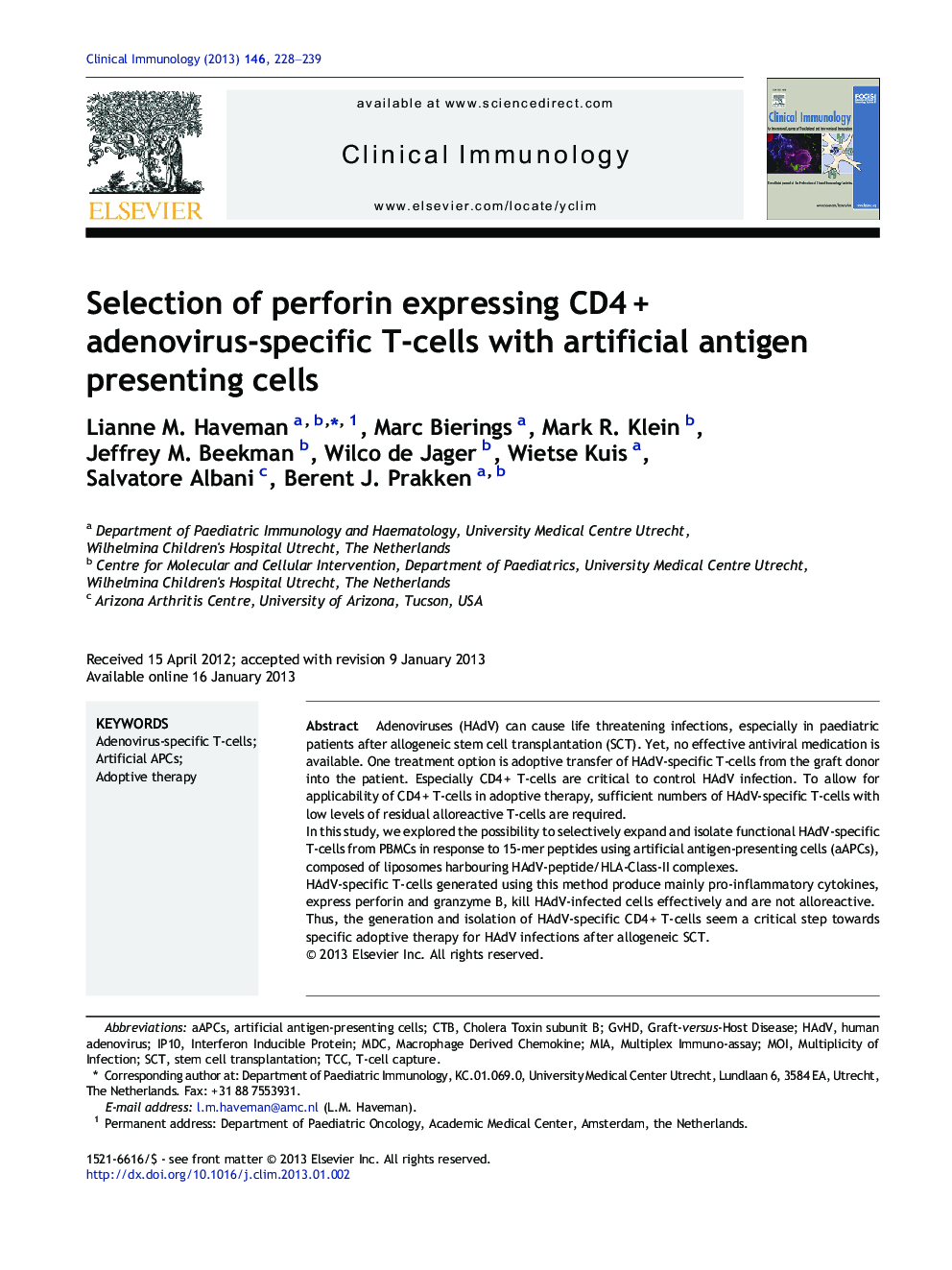| Article ID | Journal | Published Year | Pages | File Type |
|---|---|---|---|---|
| 6087697 | Clinical Immunology | 2013 | 12 Pages |
Adenoviruses (HAdV) can cause life threatening infections, especially in paediatric patients after allogeneic stem cell transplantation (SCT). Yet, no effective antiviral medication is available. One treatment option is adoptive transfer of HAdV-specific T-cells from the graft donor into the patient. Especially CD4Â + T-cells are critical to control HAdV infection. To allow for applicability of CD4Â + T-cells in adoptive therapy, sufficient numbers of HAdV-specific T-cells with low levels of residual alloreactive T-cells are required.In this study, we explored the possibility to selectively expand and isolate functional HAdV-specific T-cells from PBMCs in response to 15-mer peptides using artificial antigen-presenting cells (aAPCs), composed of liposomes harbouring HAdV-peptide/HLA-Class-II complexes.HAdV-specific T-cells generated using this method produce mainly pro-inflammatory cytokines, express perforin and granzyme B, kill HAdV-infected cells effectively and are not alloreactive.Thus, the generation and isolation of HAdV-specific CD4Â + T-cells seem a critical step towards specific adoptive therapy for HAdV infections after allogeneic SCT.
⺠Highly specific adenoviral-specific T-cells were induced for adoptive therapy. ⺠Artificial antigen-presenting cells could select adenoviral-specific T-cells. ⺠Isolated adenoviral-specific T-cells kill infected cells effectively. ⺠Isolated adenoviral-specific T-cells were not alloreactive. ⺠Isolation of highly specific adenoviral T-cells is important for tailor-made therapy.
